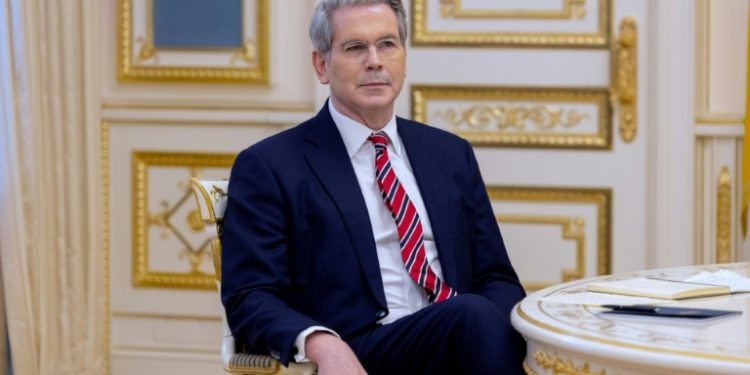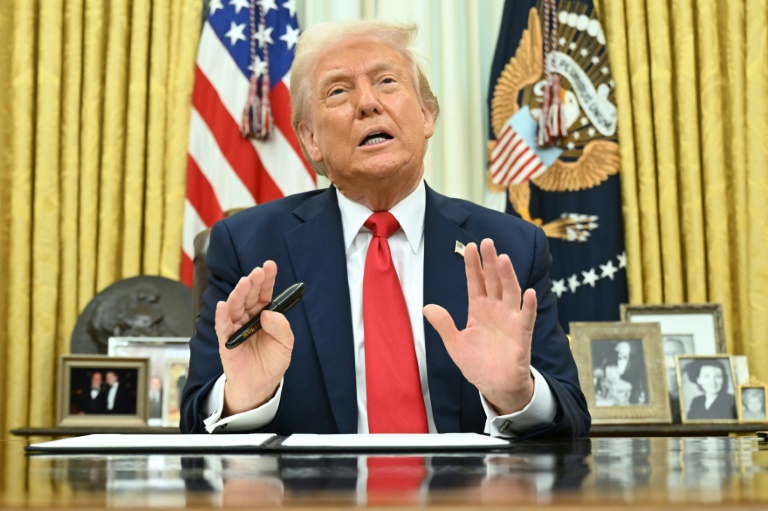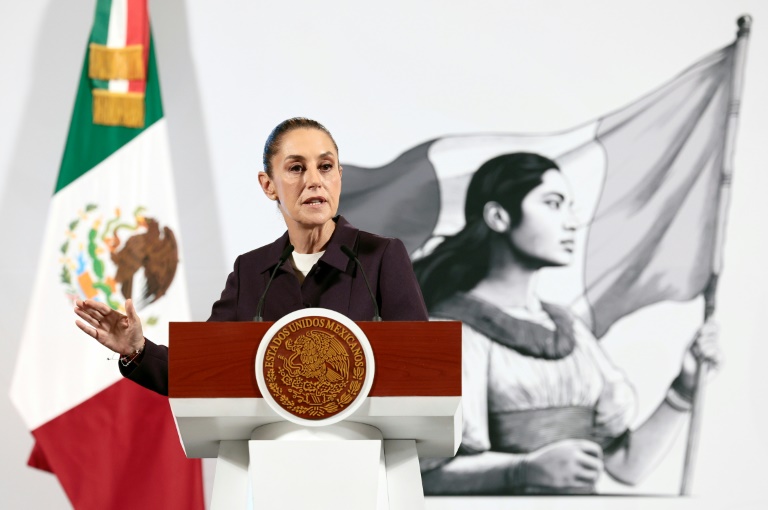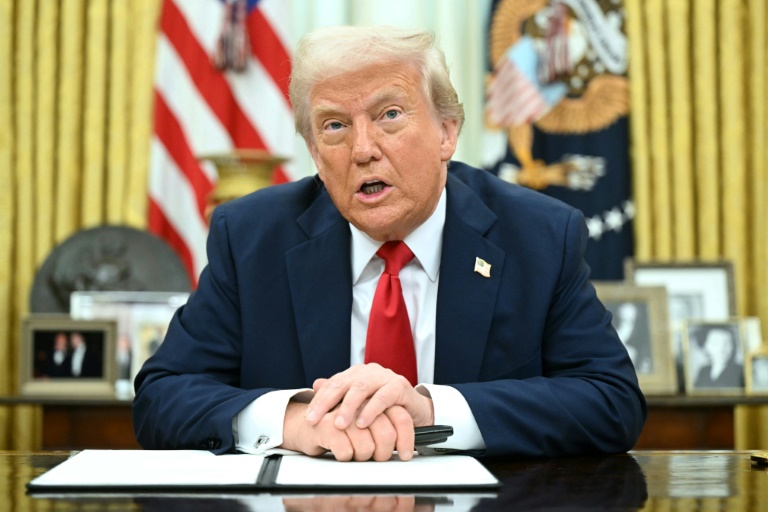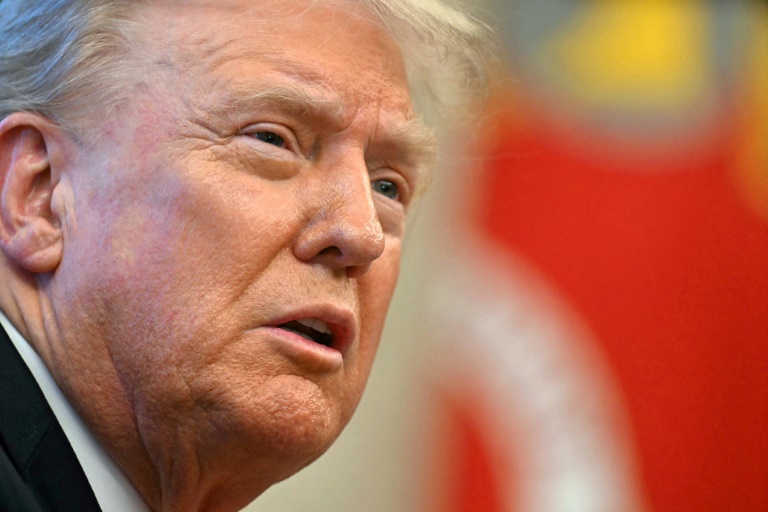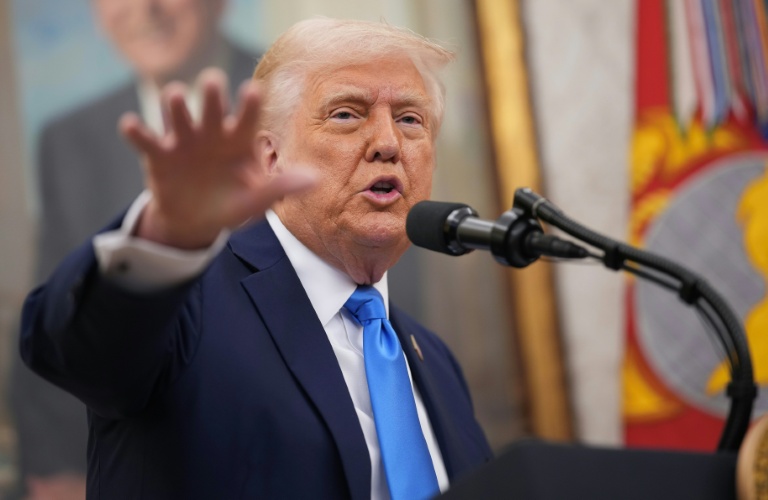Washington (AFP) – US Treasury Secretary Scott Bessent said Tuesday that tariffs are a crucial part of President Donald Trump’s economic strategy, asserting that they can be a source of government revenue to help fund investment. Bessent’s remarks came shortly after he met with Australian Treasurer Jim Chalmers, whose country is pushing for an exemption from Trump’s steep levies on steel and aluminum imports.
Since taking office in January, Trump has unveiled tariff plans threatening to hit allies and adversaries alike, including 25 percent levies on steel and aluminum imports to take place next month. In a wide-ranging speech at the Australian Embassy on economic policy, Bessent said tariffs are an essential component of Trump’s broader economic strategy. They are able to boost US industrial capacity, help improve national security, and can be “an important source of government revenue, which can help fund investments,” he added. Tariffs can also be “used as a tool to correct and manage the internal imbalances in other economies” by adjusting how much American consumers take in of their excess supply, Bessent said.
After a call with Trump, Australian Prime Minister Anthony Albanese said earlier this month that the pair agreed an exemption from tariffs for Australia was under consideration. On whether Australia could avoid US levies, Bessent noted he was not the US Trade Representative, a key figure in tariff decisions. Chalmers said Tuesday that the US-Australia partnership was mutually beneficial and critical, adding that the two sides covered much ground in talks.
On China, Bessent said the world’s second largest economy needed more consumption. While Beijing has been looking to focus more on higher-value manufactured goods, he added, this could cause problems for other industrial economies. “We have to push back and tell them that they cannot export their deflation to the rest of the world,” he said.
Bessent said the Trump administration’s goal is to “reprivatize the economy.” He said much of the job growth in the past four years has been concentrated in public and government-adjacent sectors. He criticized former president Joe Biden’s administration for “overreliance on excessive government spending and overbearing regulation,” saying the US economy may have shown “some reasonable metrics but ultimately was brittle underneath.”
He reiterated a need to end “government waste” and defended the Department of Government Efficiency (DOGE), saying this was not a “department of government elimination.” DOGE, an entity headed by tech entrepreneur Elon Musk, has faced growing resistance on its cost-cutting campaign, including court rulings and some pressure from lawmakers. Bessent said government cuts would be accompanied by deregulation, adding that smaller financial institutions have been increasingly bogged down by reporting requirements. The Treasury Department will “streamline best practice regulations,” working towards a level playing field, Bessent said.
© 2024 AFP

